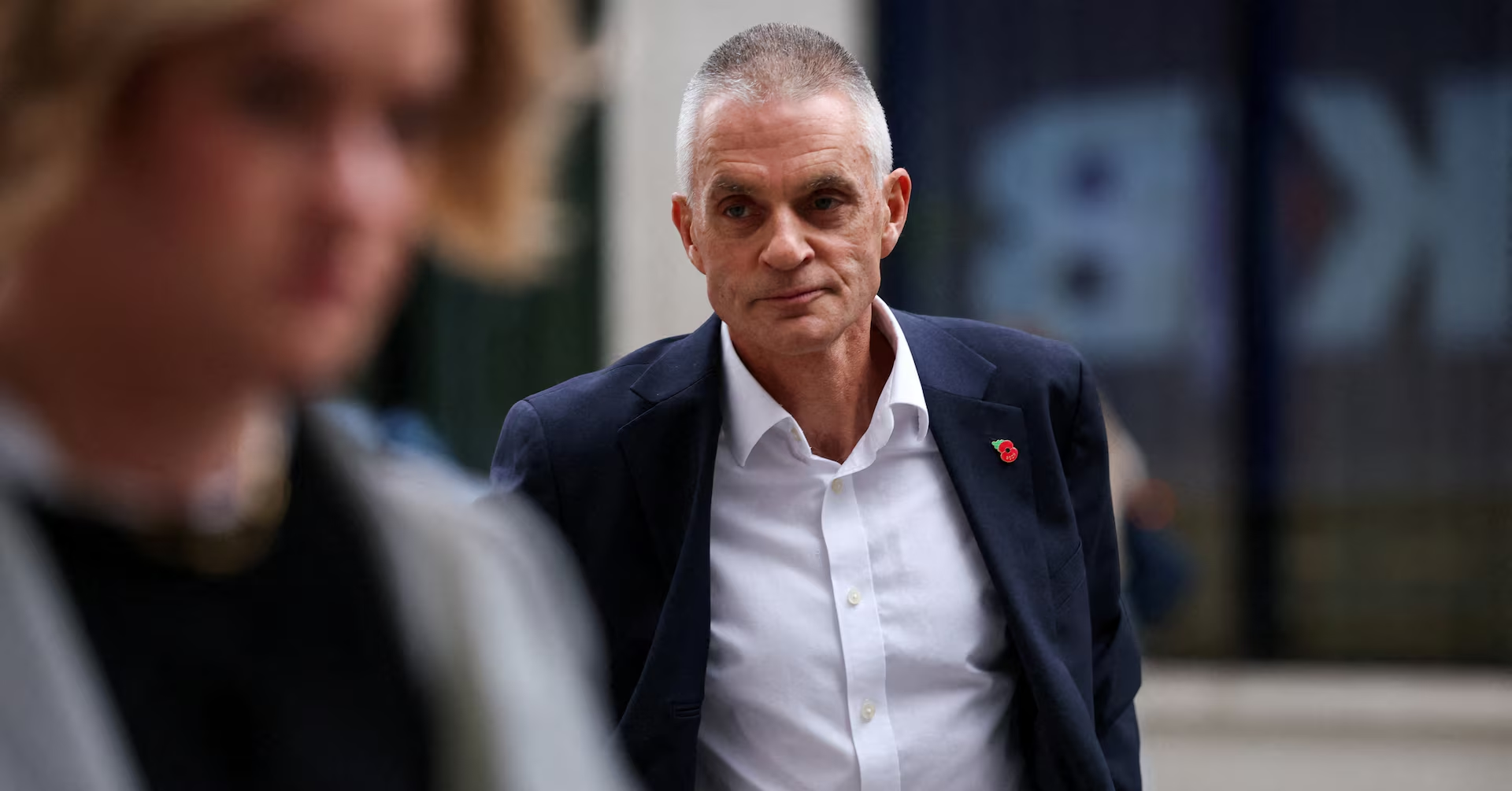Item 1 of 4 Outgoing Director General of the BBC Tim Davie arrives at BBC Broadcasting House after he and Chief Executive of BBC News Deborah Turness resigned following accusations of bias at the British broadcaster, including in the way it edited a speech by U.S. President Donald Trump, in London, Britain, November 11, 2025. REUTERS/Hannah McKay
[1/4]Outgoing Director General of the BBC Tim Davie arrives at BBC Broadcasting House after he and Chief Executive of BBC News Deborah Turness resigned following accusations of bias at the British broadcaster, including in the way it edited a speech by U.S. President Donald Trump, in London, Britain,… Purchase Licensing Rights, opens new tab Read moreBBC ‘made some mistakes’, outgoing head admitsBroadcaster in crisis, accused of biasTrump threatens $1 billion legal action over speech editLONDON, Nov 11 (Reuters) – The outgoing boss of Britain’s BBC sought to rally his journalists on Tuesday, saying that although they had made mistakes they needed to fight for their work as the broadcaster confronts legal action by U.S. President Donald Trump.The British Broadcasting Corporation has been plunged into its biggest crisis in decades after its two most senior staff, Director General Tim Davie and head of news Deborah Turness, quit following criticism over standards and accusations of bias at the corporation, including in connection with the way it edited a speech by Trump.
Sign up here.
Trump’s lawyers have said the BBC must retract the documentary in which the edited speech was aired by Friday, or face a lawsuit for “no less” than $1 billion.
Davie told staff that he was fiercely proud of the publicly funded organisation, while acknowledging that “we have made some mistakes that have cost us”.
“We are a unique and precious organisation, and I see the free press under pressure, I see the weaponisation,” he said at an all-staff meeting, without elaborating.
QUESTIONS OVER PUBLIC TRUST
Some political figures and sections of the British press have directed allegations of bias at the BBC – including claims that it favours the governing Labour Party – and have used the criticism to challenge its licence fee funding model.
Supporters of the broadcaster, meanwhile, argue that such attacks are part of a broader campaign against public service media.
A snap YouGov poll conducted on Monday, a day after Davie’s resignation, showed one-third of the British public believes the BBC has a left-wing bias.
Analysts say the resignations have exposed deep frictions over governance and editorial standards at the broadcaster, raising questions about whether it can maintain public trust.
An internal memo by a former BBC adviser accused it of editorial failings on Trump, the Israel-Hamas war and transgender coverage.ATTEMPT TO CALM CONCERNS OVER BBC’S FUTURE
But Davie, who became director general in 2020, tried to calm worries over the broadcaster’s future.
“The BBC is going to be thriving, and I support everyone on the team,” he said ahead of the all-staff meeting.
Davie said he had decided to step down because of the job’s relentlessness, the need to give his successor time to prepare for the next review of the BBC’s funding model, and an editorial breach that required accountability, according to a transcript of his comments at the staff meeting.
The outgoing boss said he was proud of the team he had built, adding that “some responsibility had to be taken” for mistakes made.
Critics have said the edit of a speech made by Trump in 2021 on the day his supporters overran the Capitol was part of a wider pattern of failure to uphold impartiality at the BBC.
REVIEW OF FUNDING MODEL LOOMSBBC chair Samir Shah apologised for the “error of judgment” in the edit, which was included in a Panorama documentary aired shortly before the November 2024 U.S. presidential election.
The programme – produced by a third party – spliced together remarks delivered nearly an hour apart, omitting Trump’s call for peaceful protest and creating the impression he urged violence.
The BBC, founded in 1922 and funded largely by a licence fee paid by all TV-owning households, is now without a permanent leader as it faces a government review of the terms of its charter and funding model.
The current 10-year charter expires in 2027.
Prime Minister Keir Starmer on Monday rejected suggestions that the BBC was “corrupt” or “institutionally biased” and stressed the need for it to maintain high standards.
When asked for a response to the U.S. president’s legal threat on Tuesday, a spokesperson for Starmer told reporters: “It is clearly not for the government to comment on any ongoing legal matters.”
“Our position is clear that the BBC is independent and it is for the corporation to respond to questions about their editorial decisions,” they added.
The spokesperson also noted Starmer’s “very strong relationship” with Trump.
In a letter to British lawmakers, Shah rejected claims of systemic bias, saying surveys showed Britons trusted BBC News more than any other outlet.
Reporting by Sarah Young and Sam Tabahriti, additional reporting by Elizabeth Piper; Editing by Kate Holton, Gareth Jones and Aidan Lewis
Our Standards: The Thomson Reuters Trust Principles., opens new tab

